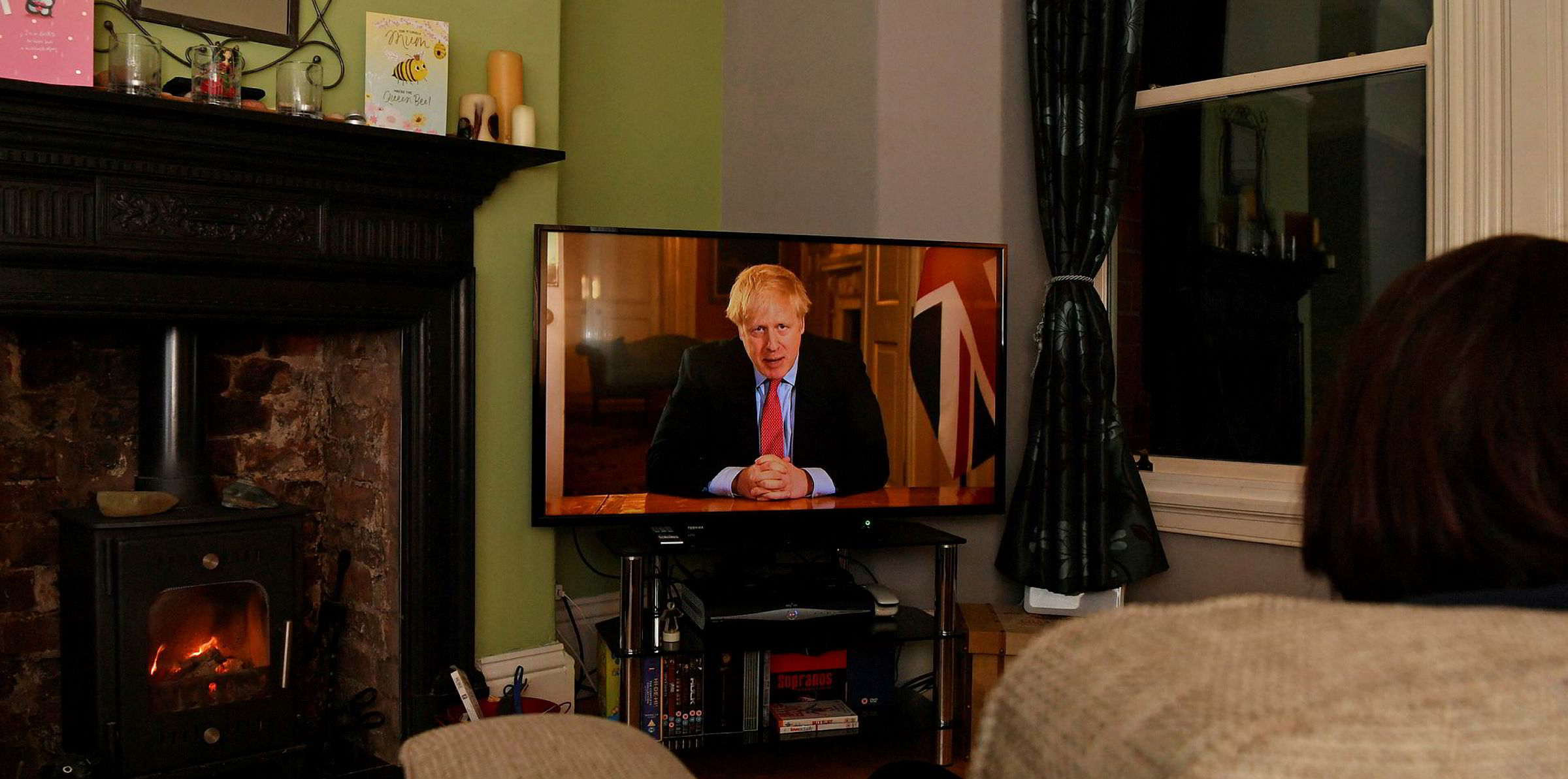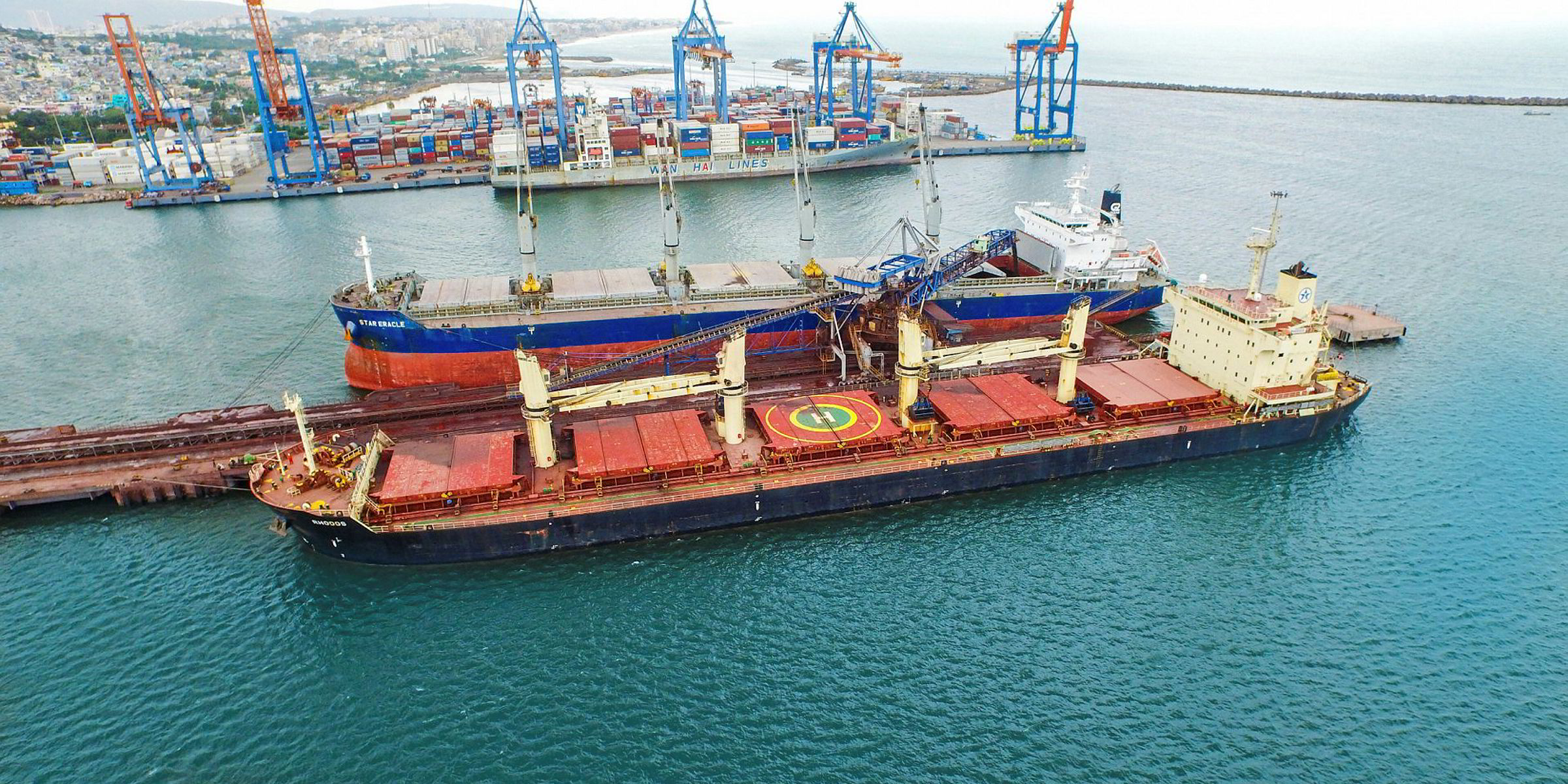UK shipping-focused companies are leaning on technology to keep operations running after Prime Minister Boris Johnson ordered countrywide restrictions this week that require all but essential workers to stay at home in a bid to slow the spread of the coronavirus.
The move, which bars gatherings of more than two people but was not officially called a "lockdown", came as many companies already had sent staff home as government recommendations last week urged increasing restrictions and as other countries took more severe measures.
Crisis industry in crisis mode
The insurance business is based on responding to crisis so it is no surprise the marine market has contingency plans in place for situations like the current strict new curbs on life in the UK.
The closure of the Lloyd’s of London market has accelerated the use of an electronic placing platform, known as PPL, which allows underwriters and brokers to negotiate and place policies digitally. As an extra measure, Lloyd’s has put its emergency trading protocols in place.
PPL is also widely being used in the non-Lloyd’s company market.

Lloyd’s chief executive John Neal said: “We are confident that our emergency trading protocols will enable the market to continue trading during the closure and we will review this decision on a weekly basis.”
Dave Matcham, chief executive of the International Underwriting Association, which represents the company insurance market in the UK capital, tweeted that since the London company market went remote, its meeting attendances have increased.
“Delighted that we can still easily and virtually facilitate necessary member meetings to discuss key underwriting and regulatory issues. Attendances are higher than previous in-person versions as members use and network with their peers,” he said.
Fortunately, the protection and indemnity clubs completed their annual round of policy renewal on 20 February, just before the crisis exploded around the world, so there is little pressure for underwriting teams. But claims, finance, loss prevention and other administrative teams still need attending to.
Ian Gooch, chief executive of London P&I Club, said the early indications are that its contingency plans work and the business can operate remotely.
“We are working from home and our teams, including claims and loss prevention support, as well as underwriting, accounting and administration, are all up and running,” he said.
“We’re operating remotely but the focus is on maintaining our normal levels of service and communications with our members as well as brokers, correspondents and other stakeholders.”
Stuart Edmonston, director of loss prevention at the UK P&I Club, said the mutual is hosting webinars so that members around the world can keep on top of loss-prevention issues, such as IMO 2020.
“We thought, given the current global situation and with many of us working from home, that hosting webinars is the best way to keep us all connected and informed from the comfort and safety of our respective, in my case very cramped, makeshift offices,” Edmonston said.
Marsh, the world’s largest marine insurance broker, is also remotely hosting a series of remote webinars where P&I experts from around the world will address shipowners’ concerns over liability cover.
Shipbrokers using same tech
Shipbrokers in London have told TradeWinds that they are working from home, but report little change in the way they use technology to speak to others in the market.
Giuseppe Rosano, founder and chief executive of Alibra Shipping, said he made the decision to close the brokerage’s London office last Thursday. All staff are now working from home.
“Naturally, it has affected us in a way we have never experienced,” he told TradeWinds.
“Luckily, we are up to date with technology and we continue to be live, but without the interaction and proximity of our colleagues. Wearing a t-shirt for work is a perk, however!”
Rosano said it is “too early” to make any judgements about how the UK’s shipbroking sector would be changed by the government lockdown, but said the market was using phones, email and Skype as usual.
“I have encouraged employees not to obsess over social media and limit watching or listening to the news during the day, and I have actually seen we are more focused on the tasks in hand, as opposed to the daily distractions we encounter in the office,” he said.
London-based shipbroker Braemar ACM told TradeWinds that its London office went into full wind-down mode 10 days ago, with one or two staff still travelling in on bikes, but now everyone is working from home.
Offshore at home
In the offshore vessel hub of Aberdeen, major owner Vroon Offshore Services has all of its staff working from home, “unless this is impossible”, the outfit told TradeWinds.
Operations are still running, but crew changes have been suspended until 2 April.
The company called these “challenging times, where even the smallest process can be a huge effort”.
The wider Vroon group, which is based in the Netherlands, has also switched to working from home.
Trader seeks 'continuity'
Trafigura, which has a small number of IT professionals working from London, said it has adopted a “business continuity” plan globally while prioritising the health of its employees and contractors.
“We are taking guidance from advice issued by governments and international organisations,” the trading giant said.
“Many locations worldwide are applying a social-spacing policy, including some office-based employees working from home or offsite at business continuity facilities.”





